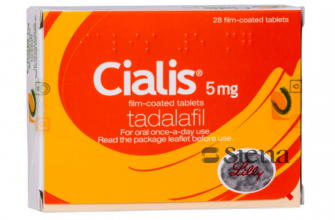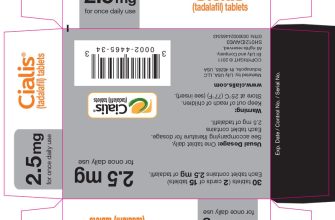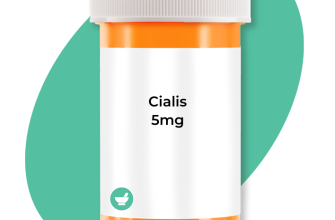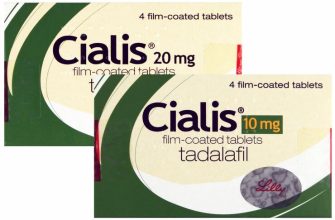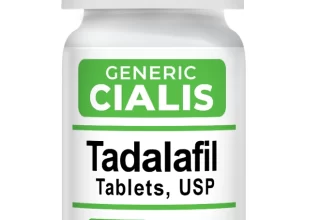If you’re considering Zoloft (sertraline) for managing anxiety or depression in Canada, you’re not alone. This medication is a popular choice, known for its ability to balance serotonin levels in the brain. Many patients report significant improvements in their mood and overall quality of life after starting treatment.
In Canada, Zoloft is available by prescription, which means a visit to a healthcare provider is necessary to determine if this medication is right for you. The prescribing process typically involves a thorough evaluation of your medical history and current symptoms. If Zoloft is deemed appropriate, you can expect guidance on the correct dosage and how to monitor its effectiveness.
Understanding how to use Zoloft safely is crucial. Start with the prescribed dosage and note any side effects. Common ones include nausea, fatigue, and changes in appetite, but these often subside within a few weeks. Regular follow-ups with your healthcare provider will help ensure your treatment remains on track and effective.
Acquiring Zoloft in Canada is straightforward. It’s available at most pharmacies, and some online services offer prescription fulfillment. Always choose reputable sources to ensure you’re receiving genuine medication. Don’t hesitate to ask your pharmacist any questions regarding the medication, as they can provide valuable information on interactions, storage, and anything else you might need to know.
- Zoloft in Canada: A Detailed Overview
- Understanding Zoloft: Mechanism of Action and Benefits
- Accessing Zoloft in Canada: Prescription and Availability
- Cost of Zoloft: Pricing and Insurance Coverage in Canada
- Insurance Coverage for Zoloft
- Reducing Costs
- Potential Side Effects and Considerations When Using Zoloft
Zoloft in Canada: A Detailed Overview
Zoloft, known generically as sertraline, stands out as a popular treatment option for conditions such as depression, anxiety disorders, and obsessive-compulsive disorder in Canada. Health professionals often prescribe it due to its favorable side effect profile and robust clinical support.
Availability is straightforward, with Zoloft accessible through many pharmacies across Canada. It typically comes in tablet form, available in various dosages including 25 mg, 50 mg, and 100 mg. Patients can expect to receive their prescriptions from general practitioners or psychiatrists, who monitor their progress to adjust dosages as needed.
The cost of Zoloft may vary based on coverage. Many Canadians benefit from provincial health plans that cover prescription medications, while private insurance may also alleviate costs. Patients should check their specific plan details to identify coverage options.
Side effects can occur but are generally manageable. Common issues include gastrointestinal disturbances, fatigue, or sleep disturbances. Regular follow-ups with healthcare providers help ensure any side effects are adequately addressed and managed.
It’s crucial for users to adhere to prescribed dosages and schedules. Stopping or adjusting medication without consulting a healthcare professional can lead to withdrawal symptoms or a return of the original condition. Always communicate openly with healthcare providers regarding any concerns or symptoms that may arise during treatment.
Lastly, support resources are widely available, offering additional guidance for individuals taking Zoloft. Mental health partnerships and online communities provide valuable insights and shared experiences, fostering a supportive environment for those on treatment paths.
Understanding Zoloft: Mechanism of Action and Benefits
Zoloft, known generically as sertraline, functions primarily as a selective serotonin reuptake inhibitor (SSRI). This mechanism increases serotonin levels in the brain, enhancing mood and emotional well-being.
By inhibiting the reuptake of serotonin, Zoloft ensures that more serotonin remains available in the synaptic cleft, which promotes better communication between neurons. This leads to improved mood, reduced anxiety, and a decrease in symptoms associated with depression.
Key benefits of Zoloft include:
- Effective Treatment for Depression: Zoloft is widely prescribed for major depressive disorder, demonstrating significant improvements in mood and functionality.
- Reduction of Anxiety Symptoms: It effectively alleviates symptoms of various anxiety disorders, including generalized anxiety disorder and social anxiety disorder.
- Management of Obsessive-Compulsive Disorder (OCD): Patients have reported a decrease in intrusive thoughts and compulsions.
- Support for Post-Traumatic Stress Disorder (PTSD): Zoloft aids in reducing flashbacks and anxiety related to trauma.
Dosage is tailored to each patient, starting low and gradually increasing to minimize side effects. Common side effects include nausea, insomnia, and sexual dysfunction, but many individuals find these manageable.
Regular consultations with a healthcare provider ensure that the treatment remains effective and side effects are monitored. Combining Zoloft with psychotherapy can enhance overall treatment outcomes, allowing for long-lasting improvements in mental health.
In conclusion, Zoloft’s specific action on serotonin reuptake plays a crucial role in addressing various mental health conditions with notable benefits for patients.
Accessing Zoloft in Canada: Prescription and Availability
To obtain Zoloft in Canada, first, consult your healthcare provider. Only a licensed doctor can prescribe this medication, as it is regulated under Canadian law. During your appointment, discuss your symptoms openly to help your doctor determine if Zoloft is the right choice for you.
Once prescribed, Zoloft is available at most pharmacies across Canada, including large chains and independent locations. You can also find it online through licensed Canadian pharmacies that require a valid prescription. Confirm that the pharmacy is certified and adheres to Canadian regulations for your safety.
Insurance plans may cover Zoloft, but check with your provider for specific details regarding coverage and potential co-pays. If you are unable to afford the medication, talk to your doctor about patient assistance programs that may be available.
Be sure to follow your doctor’s instructions regarding dosage and duration of treatment. Regular follow-ups with your healthcare provider are essential to monitor your progress and make any necessary adjustments to your treatment plan.
Cost of Zoloft: Pricing and Insurance Coverage in Canada
The average retail price for Zoloft (sertraline) in Canada varies depending on the pharmacy and location. On average, a 30-day supply of 50 mg tablets ranges from CAD 40 to CAD 90. Generic versions can significantly reduce this cost, often available for around CAD 20 to CAD 50 for a similar supply.
Insurance Coverage for Zoloft
Many insurance plans in Canada cover Zoloft that is prescribed by a healthcare professional. Coverage may vary based on the specific plan, so it’s key to check your individual benefits. Some plans require prior authorization or may have a preferred list of medications, which could influence out-of-pocket expenses.
Reducing Costs
Consider discussing alternatives and generic options with your doctor. Numerous discount programs and patient assistance initiatives are available for those without insurance. Many pharmacies also offer loyalty programs that can lead to additional savings on prescription medications.
Potential Side Effects and Considerations When Using Zoloft
Always consult a healthcare professional before starting Zoloft. Common side effects include nausea, diarrhea, insomnia, and sexual dysfunction. Monitor your response closely and report any persistent issues to your doctor.
Some individuals may experience weight gain or loss while on Zoloft. Keep track of your weight and discuss any significant changes with your healthcare provider. Staying active and maintaining a balanced diet can help manage these effects.
Serotonin syndrome is a rare but serious condition that can occur with Zoloft. Symptoms include agitation, confusion, rapid heart rate, and muscle rigidity. Seek medical attention immediately if you notice these signs.
Withdrawal symptoms can manifest when discontinuing Zoloft. Gradually tapering off under a doctor’s guidance reduces the risk of withdrawal effects such as dizziness, irritability, or flu-like symptoms.
Pregnant or breastfeeding individuals should discuss potential risks with their healthcare provider, as Zoloft can affect both mother and child. Consider alternative treatments if necessary.
Interactions with other medications can occur with Zoloft. Provide your doctor with a complete list of all medications, including over-the-counter ones, to prevent adverse effects.
Regular follow-up appointments help monitor mental health and medication effectiveness. Open communication with your healthcare provider is vital for adjusting dosages or exploring alternatives if side effects become unmanageable.


